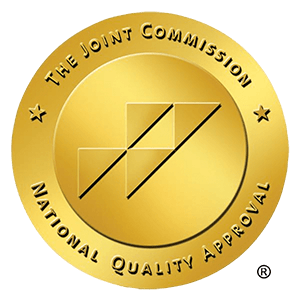In the realm of mental health care, navigating the plethora of treatment options can be overwhelming. But what exactly comprises a PHP, and how does it function in supporting individuals on their path to recovery? In this comprehensive guide, we’ll delve into the intricate components of a Partial Hospitalization Program. From its structure and therapeutic interventions to the types of individuals it serves, we’ll break down each element to provide a clear understanding of how PHPs operate within the spectrum of mental health care. Whether you’re considering PHP for yourself or a loved one, or simply seeking to broaden your knowledge of mental health treatment options, this exploration aims to equip you with the insights needed to make informed decisions and advocate for effective care.
Medication Management in Partial Hospitalization Programs
In the realm of mental health treatment, medication management plays a pivotal role in helping individuals manage symptoms and regain stability. Within the continuum of care, Partial Hospitalization Programs (PHPs) provide a comprehensive approach to treatment, integrating medication management as a crucial component. In this exploration, we delve into the intricacies of medication management within PHPs, highlighting its significance and the strategies employed to optimize patient outcomes.
Monitoring and Follow-Up
Continuous monitoring and follow-up are essential aspects of medication management within PHPs. Patients are regularly assessed for treatment response, side effects, and adherence to medication regimens. Psychiatrists and other members of the treatment team remain vigilant for any changes in symptoms or circumstances that may necessitate adjustments to the treatment plan.
Collaborative Decision-Making
Central to medication management in PHPs is a collaborative approach between patients, psychiatrists, and other members of the treatment team. Patients are actively involved in discussions regarding their treatment goals, preferences, and concerns. Psychiatrists conduct comprehensive evaluations to determine the appropriateness of medications, considering factors such as efficacy, potential side effects, interactions with other medications, and individual risk factors.
Personalized Treatment Plans
Medication management within PHPs emphasizes the development of personalized treatment plans tailored to each patient’s needs. This includes selecting the most suitable medications, determining optimal dosages, and establishing a plan for monitoring treatment response and potential side effects. Regular medication reviews are conducted to assess efficacy, adjust dosages as needed, and address any emerging concerns.
Education and Empowerment
An essential aspect of medication management in PHPs is patient education and empowerment. Patients receive comprehensive information about their medications, including their intended effects, potential side effects, and strategies for managing them. This empowers patients to make informed decisions about their treatment and actively participate in their recovery journey.
Integration with Therapy and Supportive Services
Medication management is seamlessly integrated with other components of treatment within PHPs, including individual therapy, group therapy, and psychosocial interventions. Medications are viewed as one tool in a broader toolkit for recovery, complementing therapeutic interventions aimed at addressing underlying issues, improving coping skills, and enhancing overall functioning.
Enhancing Life Skills: A Core Component of Partial Hospitalization Programs
Life skills are essential for navigating the challenges of daily living, particularly for individuals facing mental health difficulties. Within Partial Hospitalization Programs (PHPs), life skills training is a fundamental component aimed at empowering individuals to achieve greater independence and resilience. Let’s explore the importance of life skills training within PHPs and key strategies for enhancing essential life skills.
- Practical Skills Development: Life skills training in PHPs focuses on imparting practical skills necessary for managing various aspects of daily life, including time management, organization, communication, and problem-solving.
- Social Skills Enhancement: PHPs offer opportunities for individuals to enhance their social skills through group activities, role-playing exercises, and interpersonal communication training. These skills are crucial for building and maintaining meaningful relationships.
- Coping Strategies: Life skills training equips individuals with effective coping strategies to manage stress, regulate emotions, and navigate challenging situations. These strategies enhance resilience and promote emotional well-being.
- Financial Management: PHPs provide education and support in financial management, including budgeting, bill payment, and financial planning. These skills are vital for promoting financial stability and independence.
Life skills training is a cornerstone of Partial Hospitalization Programs, offering individuals practical tools and strategies for achieving greater independence, resilience, and well-being.
Transitioning from Inpatient Care to Partial Hospitalization Programs
Transitioning from inpatient care to a Partial Hospitalization Program (PHP) marks a critical juncture in the treatment journey of individuals grappling with mental health challenges. This transition, often referred to as step-down or discharge planning, requires careful coordination and support to ensure continuity of care while facilitating the individual’s successful reintegration into their community. In this comprehensive exploration, we delve into the multifaceted aspects of transitioning from inpatient care to PHPs, highlighting the strategies, challenges, and benefits inherent in this pivotal process.
Assessment and Individualized Planning
Prior to transitioning to a PHP, individuals undergo a thorough assessment to determine their readiness for step-down care. This assessment encompasses clinical evaluation, risk assessment, consideration of social support networks, and identification of ongoing treatment needs. Based on this assessment, an individualized transition plan is developed, outlining the specific goals, interventions, and supports necessary to facilitate a smooth transition.
Gradual Reduction of Intensity
One of the key principles guiding the transition from inpatient care to a PHP is the gradual reduction of treatment intensity. This may involve gradually decreasing the frequency and duration of therapeutic interventions while increasing the individual’s autonomy and responsibility for self-care. The transition is paced according to the individual’s progress and readiness to step down to a less intensive level of care.
Continuity of Care
Ensuring continuity of care is paramount during the transition process. This involves seamless communication and collaboration between the inpatient treatment team and the PHP staff to transfer pertinent clinical information, treatment plans, and ongoing concerns. Additionally, arrangements are made for follow-up appointments with psychiatrists, therapists, and other providers to ensure that the individual’s treatment remains uninterrupted.
Supportive Services and Resources
Transitioning to a PHP often involves connecting individuals with supportive services and resources in their community. This may include referrals to outpatient therapy, support groups, vocational rehabilitation programs, housing assistance, and other community-based resources aimed at promoting stability, independence, and social integration.
Family and Peer Support
Involving family members and peers in the transition process can provide invaluable support to individuals as they navigate the challenges of transitioning from inpatient care to a PHP. Family therapy sessions, psychoeducation, and peer support groups offer opportunities for individuals and their loved ones to receive guidance, encouragement, and practical assistance during this transition period.
Conclusion
Core Recovery in Phoenix, Arizona, USA, we are committed to providing comprehensive care through our Partial Hospitalization Program (PHP). By breaking down the program’s components, we ensure that our clients receive personalized treatment tailored to their specific needs. From therapy sessions to medication management and skill-building activities, our holistic approach fosters healing and empowers individuals on their journey towards recovery. With a dedicated team and a supportive environment, we strive to promote lasting positive changes and facilitate the path to a healthier, fulfilling life. For inquiries, please contact us at 602-926-7729.





 In CA By O360®
In CA By O360®